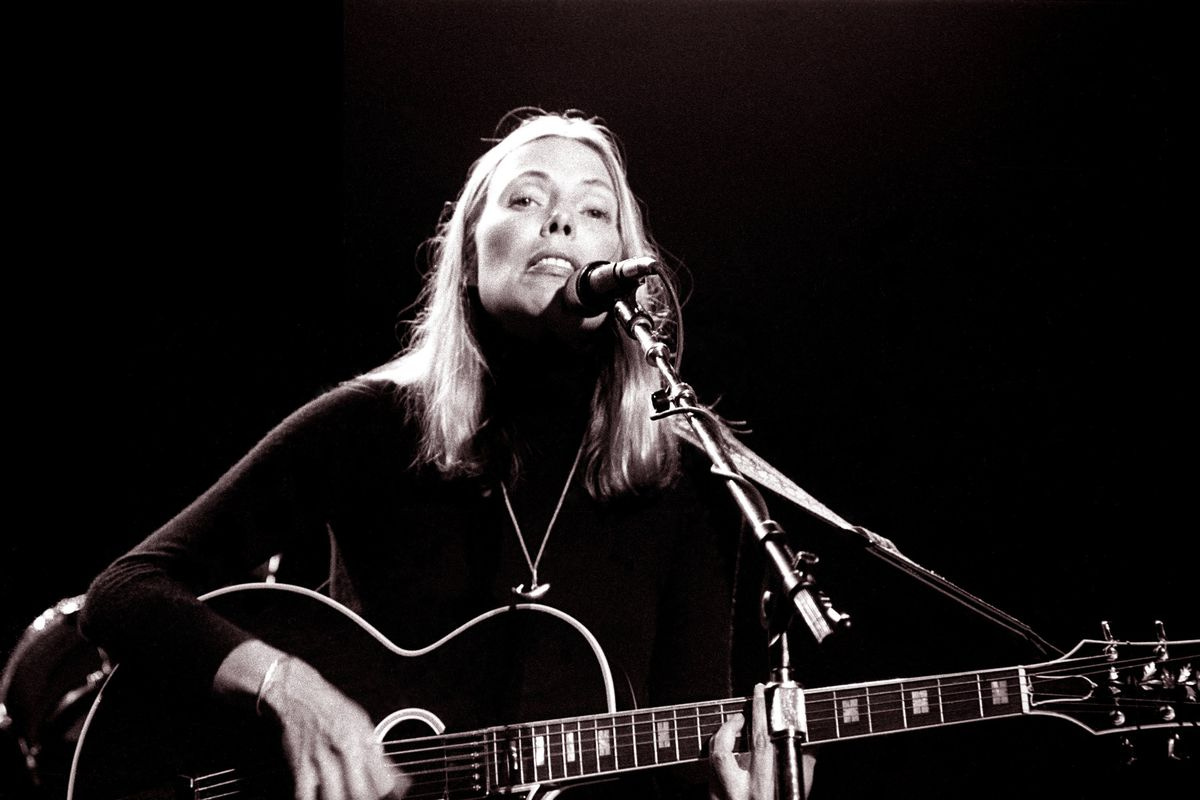Set scene: It’s the Newport Folk Festival, July 2022. After nine years away from the spotlight and an astonishing 53 years after the last time she performed at the Festival, Joni Mitchell, in a surprise appearance, is back on their stage. She’s singing ‘Both Sides Now’, her signature piece, a grueling song not for the faint of heart, but she wrote it, after all, and it’s expected. She begins to sing, unsure and halting at first, as if this might not be a good idea.
She’s 78 years old now. She sits rather than stands, which compresses her chest and her diaphragm. It’ll be much harder to sing in that position and she knows it. She’s drumming her fingers on the chair arms, maybe to keep time with the music, maybe to ease her anxiety. I’m nervous just watching her.
As we age our voices change. They deepen and wobble. It’s rare that you can’t recognize an old person simply by hearing them speak. Our vocal cords lose elasticity and the smooth ride along them becomes bumpy and full of hazards. It’s especially hard for those who sing. The very act of singing abuses vocal cords. They wear out fast.
Singers who are famous understand and dread the irony: they’re accelerating the end of their careers by doing the very thing they’re compelled by their own creative juices to do. Many of them stop before their voices begin to quake and go off key, but, for some, stopping would be like cutting off a life source. Quitting is unthinkable.
I remember a middle-aged Frank Sinatra sneering at older singers, bragging that he’d know when to quit and he’d quit before he lost that easy style, that perfect pitch, whatever it is that made the magic. He didn’t quit. And he still made magic.
Glen Campbell was a victim of Alzheimer’s and it was painful to watch as his memory diminished, making him a sad imitation of himself. But something amazing happened: He didn’t lose his voice. He remembered the tune, knew when to breathe, knew how intonation would affect his audiences. He went on to give concerts until the very end.
The same thing is happening to Tony Bennett, also diagnosed with Alzheimer’s. He still has that amazing voice. He still remembers the words. It’s as if their brains know to protect that one glorious part, preserving the last vestige of creative mastery, allowing that person to still stand out from all the others.
It’s not unusual for me to cry when I hear my favorite singers, old now, trying to bring back the magic, their breathless voices trembling and off-key. The control may be gone but the fire in them still burns. They’re up there giving it their all. For me and for them. Their dedication is so brave, their need so acute, it becomes an honor to watch them.
Seventy-eight-year-old Joni Mitchell did that the other day at the Newport Folk Festival, where, after many years of performing offstage only, after a brain aneurysm in 2015, and more than a half-century after she last performed at the festival, she did an entire set, wowing and enchanting a lucky audience grateful to have been a part of it.
I heard about it yesterday morning, then watched it myself, blubbering through almost every minute of it, wondering why it affected me so viscerally. I’m still not sure, but the rest of this is me trying to sort it out.
It was as if I were watching a rebirth; an unexpected, well-deserved milestone in a life lived long. But the real tears flowed as I watched the younger women up there, Brandi Carlile, Wynonna Judd and the others—hesitant at first and ready with their microphones in case Joni needed help—relax and revel in their friend’s triumph. With each successful note they silently wept, they silently cheered, they filled the air with their own energy, mixing it with hers, and they were together, bonded forever in that moment.
Could she have done it alone on that stage? Maybe. But if she had been alone, I would have felt her vulnerability and every note would have made me anxious. My own worry for her would have ruined it. Will she get through it? I don’t want to look…
But she wasn’t alone. She was surrounded by friends, by love, by the comfort of knowing she couldn’t fail. Nobody, including the audience, cared about the perfection of it; she was the essence. She held the power. And, as you can see in the video, before long she was immersed and nothing else mattered but that she, Joni Mitchell, was up there and she was singing.
There’s a reason we cherish our national treasures in human form: It’s because, while their artistry, their talent, their awesome presence, is truly a gift they’re not required to share, they reward us by opening themselves up and letting us in.
We don’t know them. Not really. But they know us. It’s enough that we come away holding on to something they’ve decided to give. Our lives would be emptier without them.
Update: A FB friend shared this and I have to share it, too. The Magdalene Laundries, 1994.
(Cross-posted at Writer Everlasting, my sister newsletter for writers)





What a great story. I was a teenager when I listened to Joni Mitchell. We are all aging, every day. I respect anyone who gets in front of an audience and tries.
Hope you’re doing well. I hope your children have visited a lot this summer.
I’m trying to get outdoors more, exercise and eat better. Challenging. But I will do it.
Sending a hug,
Annie
Beautifully put, Ramona. I too was a blubbering mess, as was one of my nieces when we spoke the next day. I am lucky to have seen Joni perform live twice in my life. And we are all so lucky to have been on earth in the same moment as Joni Mitchell.